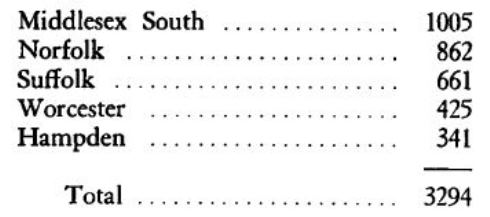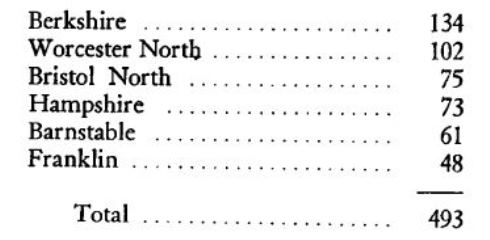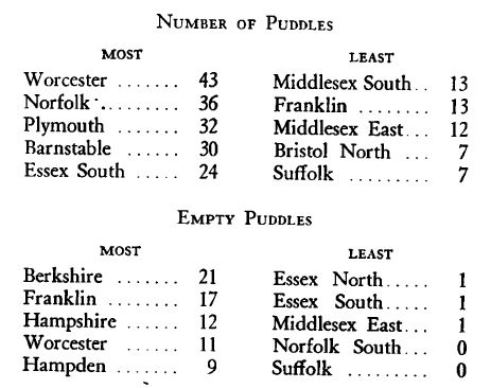Annual Oration 1943
By Edward P. Bagg, M.D.
The first problem to confront a fledgling physician is the choice of habitat, or the arena in which theories are to be put to the test, the sphere that he hopes to influence, or, if you prefer your metaphors mixed, the waters on which the enriched bread of his services shall be cast. In wartime such a discussion might seem to be entirely without point, since all graduates of approved medical schools march directly into service uniforms with little or no choice as to settlement. And in a planned economy, even in the absence of war, of course the individual concerned is the last person to be consulted about such details.
Nevertheless, I choose to continue in this unpromising vein in the hope that we may salvage perhaps some historic value from a nostalgic review of the procedures of a simpler day. At least the effort is no more out of place than is a so-called "orator" who has been thrust without consultation from the dead-end silence of the vice-presidency to the uproar of this loud-spoken rostrum.
In the choice of field of practice, if the matter has not already been settled by some such accident as birth, the question of prime consideration is size—whether the community shall be large or small, whether provincial or metropolitan. Thirty years of service in an outlying district have prepared me to speak to some purpose from the preterurban, if not bucolic, point of view. Though this may be conceded, the intrusion of the personal touch, which I trust will be overlooked, necessitates a separate apology. I can speak with authority only of my own experience, but ipso facto the topic, "Small Puddles," I hasten to add, holds no pediatric connotation.
Fortunately, our own society has prepared statistics "as of February 15, 1942," which are appended to the Directory of the Officers and Fellows. Offhand the conclusion seems justified that the Secretary should assume the responsibility for the accuracy of these figures. Thus I would involve in their defense our able incumbent, Michael A. Tighe, whose gestures and aptitude for debate are beyond question more convincing than mine. Inasmuch as the current figures show in most instances an increase over the recapitulation of 1940, it is clear that war service had not yet depleted the ranks of membership and that the figures therefore are a reliable reflection of prewar conditions.
The Commonwealth of Massachusetts has been divided medically into eighteen districts, all but six of which are crowded into the eastern third of the state, where, as is obvious, the bulk of population dwells. Of 5074, the total number of active, resident fellows of the Massachusetts Medical Society as of the above date, 661 claimed Suffolk as their district. Norfolk sheltered 862, while the number in Middlesex South was 1005. That is to say, practically half the membership was enrolled in three districts alone, swimming either in or within easy jumping distance of the major puddle, Boston. There can be little question therefore that a great many incipient practitioners have preferred to risk the anonymity of being just another frog in a large and crowded puddle. This observation is further verified by the 2.4 per cent increase in Middlesex South during the past two years, which is more than twice that of Hampden (1.1 per cent) and almost twice as much as Norfolk's (1.6 per cent). The large Worcester puddle increased even more, 4.4 per cent, which should discourage further additions. The remarkable increase of 14.7 per cent in Barnstable may easily be explained by the establishment of Camp Edwards on the Cape. At any rate, there would seem to be no further room there for expansion. Of necessity, then, at least half the new men must look for placement in the small puddles. The heaviest agglutination of frogs was found to be as follows:

This merely substantiates the well-known fact that metropolitan centers seem to exert a strong attraction for numbers of individuals in all walks of life, including the bypaths of medicine. Some of them doubtless take comfort in the presence of a multitude of neighbors. The big city offers a challenge to others, particularly those who have been reared in less sophisticated centers. Small-town boys—and girls—have always seemed to like to prove that they can make good in the major leagues.
Still others find themselves metropolitans by accident. Paul White is one of the group which can qualify by the accident of birth. He was born in one of Boston's suburbs to grace the maturity of an honorable and capable practitioner of medicine whom it was my privilege to visit as a medical student. Only recently we have learned through a pleasing stroke of notoriety by what a narrow margin he avoided the tragic accident of serving a life term in the Tower of London instead of in the Bulfinch Building with such credit. If Cornelia Skinner's mother had been less gifted, her daughter's smuggled measles might have altered history, even though they did not permanently change the damsel in distress.
I am at a loss, however, to explain the decision of a lovable Al Hornor who transplanted his sunny smile out of the Deep South into the bleak Back Bay so successfully that his happy accent is still unimpaired after thirty years of exposure to the harsh east wind that sweeps up Boston Harbor. I believe it was clinched by the power of the scientific spirit that impelled him to continue the pursuit of knowledge at the fountainhead. No man may question this, the best of reasons for settling in a puddle that seemed to be overcrowded. In the waters of science there is always room for talent and for devotion.
But I have seen, and so have you, not a few truly pathetic figures haunting the purlieus of the large metropolitan hospitals in the vain hope of a recognition that cannot come to all. Many of these misguided creatures could have been happy and respected frogs if they had shifted to smaller puddles before it was too late, or, better, had chosen wisely in the first place.
The accident of medical heritage no doubt is a factor in deciding many settlements, but no more so in rural than in urban localities. Nor is there always assurance that a medical son will elect to enter practice with his father. Not seldom he has preferred to strike out for himself, though the majority of such associations seem to be mutually appreciated. I have discovered that this factor has influenced 15 per cent of the fellow-occupants of our local puddle. Perhaps this is a fair average figure for all communities, but I have no available evidence to prove it either way. It is of interest rather than significance worthy of further consideration.
The less frequented waters in remoter regions of the Commonwealth were chosen in descending sequence thus:

It is somewhat startling to realize that all the frogs that inhabit the five least populous districts outnumber the total in the Hampden district by only 18 and that Hampden, in stands only fifth turn, in density of frog-units. Here, then, should be found Lebensraum, or better, room to swim in peace.
Passing from general considerations to particulars, or from ponds, let us say, to the study of the puddles in question, the Worcester district leads in number with forty-three, eleven of which are unoccupied by frogs. At the other extreme stands Suffolk, with only seven puddles and not one cipher among them. For contrast, the extremes in both occupied and unoccupied puddles have been grouped as follows:

It would appear that the Berkshire, Franklin and Hampshire districts offer more open expanses of frogless water than all others, the westernmost district in particular, for in Berkshire, the empties outnumber the encumbered puddles by twenty-one to sixteen. Nor should Worcester be overlooked, with eleven vacancies. At least that was the picture in 1942. The fact should be borne in mind for future discounting, that there has been a large industrial expansion in various parts of the State that may vitiate these findings. Only the future will provide the answers to such questions as to how much of the war work can be salvaged, and whether or not physicians will be drafted where they are needed without the privilege of choice.
It might be kind, before the rush of nineteen-forty-niners sets in for the gold-bearing hills, to point out the unvarnished truth about these ghost-town puddles. With a barrier of ice and snow such as has but recently melted, the hill towns can challenge the most rugged individuals and put them to the test. Some few frogs before this have given up the fight, as others doubtless will in due time, because they could not sustain themselves and their families under such conditions. What is more to the point, they could not subsist on scenery alone.
But for some years now young men have not felt that they were called on to bury themselves, as the quaint phrase put it, when practice in the country was proposed. A. Warren Steams, as dean of Tufts College Medical School, was one of the first to do something practical about stemming the tidal wave of specialism that had dangerously thinned the ranks of family doctors in the less populated districts. The scholarships that he was instrumental in raising still make it possible to nullify the prediction that Richard Cabot uttered with such finality a quarter of a century ago, that the general practitioner of medicine would soon be entirely extinct.
"As I go into towns like Bedford," he wrote in answer to my query, "which had not had a doctor for many years, and find the place that Dr. Lord has made for himself, I feel happily justified in what we have tried to do. And so I might go on, with Dr. Cole in Westford and Dr. Lewis in Groton, perhaps multiplying these several hundred times." "The people speak gratefully to me," he added, "for what we have done for the towns."
The towns, in fact, are no longer isolated as a result of modern contacts, tangible or air borne. And even tangibles promise to become air borne when a helicopter shall transport each practitioner, or television shall bring the image of the patient's ailing tongue with no expenditure of effort at all. There should be ample opportunity in those halcyon days ahead to enjoy the sunsets behind Mount Wachusett or a ski run to the summit of Greylock between calls.
As a matter of fact, there has always been time for frogs with receptive eyes to observe for themselves the manifestations of nature no matter where they are stationed. Even Roger Babson, the urbanite, has made a business of collecting sunsets. One of his choicest was observed from a hotel window in the heart of New York City. Again, I am sure that you too would have been thrilled, as I was, at the sight of that handsome but elusive duck, the redhead, taking refuge with a group of mallards in a wintry puddle in the Fenway within a stone's throw of Brookline Village. At least there could be no doubt of the reaction enjoyed by a fellow-practitioner when I pointed out for him the snowy crest of a great American egret across the back water of the Ox-Bow on our Connecticut River not so long ago. He had traversed the length of the State, but the heron had flown the long miles north from the Everglades of Florida.
And human nature, the never-ending source of wonderment and study, is universally available, in puddles large or small. Geographical considerations are not paramount in such studies, nor, in fact, in the full enjoyment of life when viewed with understanding. Lin Yutang, for example, maintains that the West still has much to learn from China in such matters. "What the modern world needs," he wrote, "is not more intellectual brilliance, but more life wisdom." Not without point he added, "The truest test of a civilization is not how you are able to conquer and to kill, but how you can get the greatest kick out of life."
From a small puddle it is but a question of minutes rather than hours to get down to earth for a profitable communion with nature, whether in pursuit of birds or birdies, as individual taste may dictate. In like manner the greater intimacy of the smaller community brings human beings more readily within range. They are not so apt to remain lay figures to be laid aside at the close of day, or the records of their troubles merely to be filed with other interesting data at the end of the service. There indeed is the rub. They have feelings that must be respected —and the spotlight of publicity searches out every action of the upstart in their midst.
Conversely, when knotty problems have been solved, and the perishing have been rescued—the appreciation is prompt and lasting. The resulting relation of affectionate trust and respect outweighs many times the larger financial rewards that are said to accrue in the more ambitious puddles. After thirty years of such experience, I can underline this last as the most convincing argument in favor of practice in small puddles.
It is more feasible, likewise, to share the public life of a small community. Such participation, though, may prove to be a liability. Indeed, a backward glance over the history of the particular puddle that I call home reveals the downfall of several frogs who played at politics. These catastrophes merely serve to re-emphasize the truth of the assertion that Medicine is a jealous mistress, and intolerant of rivals. A physician, I believe, even in a small town, should not limit his usefulness by taking sides except in matters of principle. There are too many caesars already without us to tend to such affairs. Nevertheless, it is still true that a willing frog may serve to good purpose by taking his share in the life of all who inhabit his own small puddle. During a lifetime spent in such surroundings, unknown talents may be discovered that never would have seen the light of day, and opportunities will multiply to study uncharted problems.
Jenner, for one, often has been held up as an example of what an alert mind can accomplish in a small community. Horace Wells, of Hartford, is another, and Austin Flint, of Northampton and Buffalo. Then there is Rafinesque of Kentucky, who anticipated Darwin's observations on deviations and mutations by twenty years. For a change, let me cite the case of Karl, the son of Nils, of oldtime Sweden. He hewed for himself the Latin surname of Linnaeus out of his family's linden tree and won fame for the name by patiently classifying the number of stamens and pistils of flowers that bloom in the spring, while medieval herbalists still floundered. But when it came to taking a wife, the country boy returned to his small puddle for thrifty Sara Moroea, who is said to have thrashed her daughter, spoiled her son and urged her husband to quit meddling with science and turn to earning fat fees as a physician at the Court of Gustavus the Third.
But what of "ziss frog," as Franz Pfaff used to say, the one whose motives should be most familiar? Once he had to choose like other beginners between a mighty puddle and a small one. Continued research in bacteriology with A. I. Kendall was worthy of most serious consideration. And the academic life with regulated hours held a strong appeal. Yet the lure of a vast metropolis was more easily denied. Anticipation of new scenes soon faded under the potent charms of one small puddle that lay within the broad curve of the "Long River" and mirrored the form of the familiar mountain. Prospective pursuit of fractious anaerobes yielded to the call of native flora and fauna. In other words, the tap roots and ties proved too family strong to be torn loose. So one more decision must be credited to natal implantation.
Hear ye, then—ye who are about to enter upon the practice of medicine. Do not abandon hope, but elect instead to agitate some small puddle just as this stiff-jointed frog chose to do. It is certain that he would do so again if the choice, by some magic of Merlin, ever should recur.
_______________
Bagg, Edward P. "Small Puddles." New England Journal of Medicine 228, no. 21 (1943): 667-70.
View all Annual Orations
